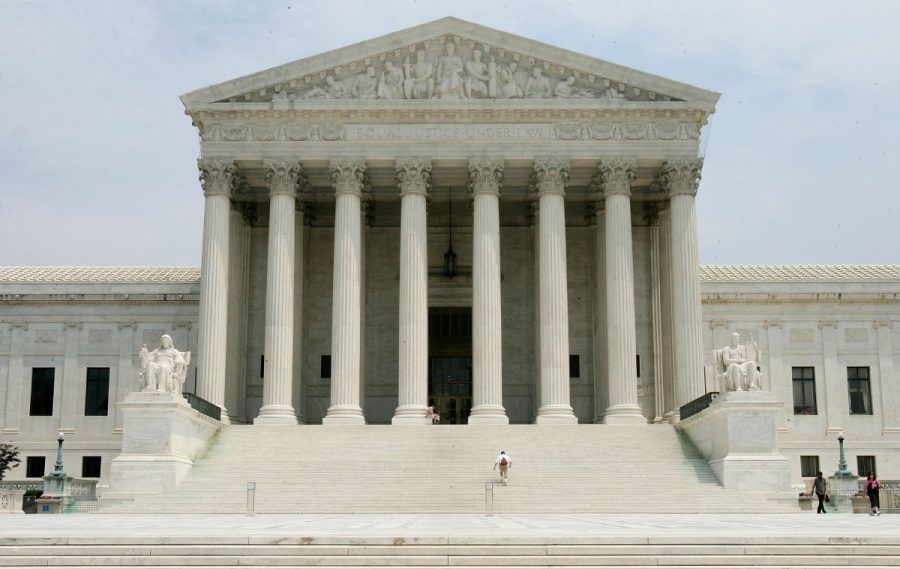On Brett Kavanaugh’s Confirmation and the Supreme Court in General
October 16, 2018
“…the judicial power of the United States… would be authorized to explain the constitution, not only according to the letter, but according to its spirit and intention; and having this power, they would strongly incline to give it such a construction as to extend the powers of the general government, as much as possible, to the diminution, and finally to the destruction, of that of the respective states.” (“Brutus,” The Antifederalist Papers XII, Feb. 7, 1778, www.constitution.org/afp/brutus12.htm)
It’s fair and evident to say that the recent process of confirming Brett Kavanaugh to the Supreme Court was a blatant exercise in political showboating. We all understand that the two-party divide has infected the prestigious, upper house of the Congress, but those who are shocked by these clear partisan lines being drawn in the supposedly independent Supreme Court must not have read the Antifederalist Papers or, at least, must not have learned of the Antifederalists’ worries. The recent Senate Judiciary Committee confirmation hearings only underscore the problem.
For those on either side of the aisle, for those who want to wield the Court’s power, the next justice to be confirmed is pivotal. The pretense of party neutrality is no more. We might as well associate the justices with the party with which their allegiances lie (the most obvious examples being Ruth Bader Ginsburg who blatantly criticized then presidential candidate Donald Trump in 2016 and Kavanaugh’s more partisan remarks during his second round of testimony). Since Kavanaugh has been confirmed, he swings the Supreme Court’s majority to the right; though, among the possible choices for textualist judges, Kavanaugh is actually fairly moderate. Neil Gorsuch, a much stauncher textualist, did not so provoke the left simply because he was to succeed Antonin Scalia, a conservative textualist, and thus not perturb the partisan balance of the Supreme Court.
Among President Donald Trump’s short list for Supreme Court nominees, Kavanaugh is not my favorite precisely because of his non-textualist stances and, the most damning of these, his supportive stance on the NSA’s collection of bulk metadata, forms of federal spying on citizens, and the corrosion of the fourth amendment. Did the left take the opportunity to reject Kavanaugh for his positions though?
No, the outspoken left, not so concerned with preserving liberties, dragged his name through the mud in a clear tactic to push back Kavanaugh’s confirmation until midterm elections when more Democrats might be elected. The Senate invited several of Kavanaugh’s accusers to testify at a Senate Judiciary committee hearing. Dr. Christine Blasey Ford accepted and accused Kavanaugh of sexual misconduct. None of her testimony was corroborated by any other testimony of friends who she claims were witnesses. Trump issued the FBI to investigate as the Senate demanded. After a week-long investigation, the FBI found nothing incriminating as to the allegations against Kavanaugh.
My personal opinion as to the question of whether Kavanaugh is guilty or not is that no one knows, not just that I don’t know, but that nobody knows. After Kavanaugh denied Ford’s allegations on the stand, a poll conducted by CBS News showed that 75% of Republicans believed that the Senate should confirm him as a Justice to the Supreme Court while 68% percent of Democrats believed he should not be confirmed. How can anyone be so sure of what allegedly happened or did not happen, as one can only conjecture, forty plus years ago? Both Ford and Kavanaugh passionately contradicted each other and themselves; neither of their testimonies (on their own merit) can serve as evidence in a proper investigation.
It is disheartening, however, that such a precedent should be set, that Senate Committee members should hold an assumption of flawed character for a Supreme Court nominee on the other side of issues.
As I stated above, these events only highlight the corrupt nature of the Supreme Court as the Antifederalists worried. Say Kavanaugh were convicted of such a crime, it would not be an easy process to impeach him. The Justices essentially have life-long terms as super legislators who, by interpreting the Constitution, create laws in effect. The Supreme Court’s power has expanded along with the “fourth branch,” or the thriving unaccountable bureaucracy, the “alphabet soup” of regulatory agencies.
“I have said that the judges under this system will be independent in the strict sense of the word. To prove this I will show that there is no power above them that can control their decisions, or correct their errors. There is no authority that can remove them from office for any errors or want of capacity, or lower their salaries, and in many cases their power is superior to that of the legislature.” (“Brutus,” The Antifederalist Papers #79, http://teachingamericanhistory.org/library/document/the-problem-of-judicial-review/)
I could not say it as eloquently as Senator Ben Sasse did to the Senate Judicial Committee and Kavanaugh. Congress is more willing to hand off power to the President, to the bureaucrats, and to the Supreme Court because the politicians thereof are more concerned about protecting their offices than their constituents’ or states’ rights. Now, the Supreme Court has become the new political “battle ground,” as Sasse puts it. This is contrary to the intent of the design of the Constitution, which spends most of its paragraphs enumerating the powers of the Congress, but I must acknowledge the wisdom of the Antifederalists who saw these flaws of the Constitution as a foot in the door for exploitation.













